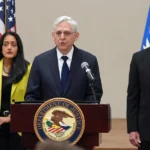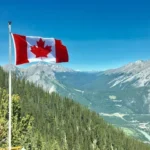There’s a lot to unpack here, and the news of Justin Trudeau’s resignation has sent shockwaves through Canadian politics. For years, Trudeau has been a polarizing figure. Many Canadians have grown increasingly discontent with his leadership, particularly his handling of the economy and policies that some argue prioritized political optics over substantive solutions.
Understanding Canada’s Parliamentary System
First, let’s take a step back and discuss why Trudeau’s resignation is so significant. Canada’s parliamentary system differs significantly from the U.S. Executive branch in one major way: no term limits. Unlike in the U.S., where a president can only serve two terms, Canadian prime ministers can remain in office indefinitely as long as they retain the support of Parliament and their political party continues to win elections.
While this system allows for experienced leadership, it also opens the door to the potential for corruption and the undue influence of corporations on long-standing politicians. Sound familiar? This lack of term limits has been a contentious issue for years, not just in Canada but in many parliamentary democracies around the world.
Trudeau’s Legacy and Resignation
As the leader of Canada’s Liberal Party, Trudeau has been in power since 2015. During his tenure, he positioned himself as a progressive champion, advocating for climate change initiatives, diversity, and inclusion. However, his time in office has not been without controversy. From accusations of ethical breaches to economic challenges exacerbated by inflation and a housing crisis, Trudeau has faced mounting criticism both from opposition parties and the public.
According to CTV News, Trudeau’s recent decision to prorogue Parliament until March was seen by many as a strategic move to “hit pause” on the legislative process and regroup. While prorogation is a common parliamentary tool, it’s often viewed with suspicion, particularly during times of political turmoil. Some speculated that this could be a prelude to Trudeau stepping aside, and now, that prediction has come true.
His resignation leaves a gaping hole in the Liberal Party’s leadership at a critical juncture. With an election potentially on the horizon and public trust in the government waning, the party will need to move quickly to find a successor capable of restoring confidence and rallying support.
Why Now?
So, why did Trudeau choose now to resign? There are several potential factors at play:
- Public Discontent: As highlighted in a Reddit thread (linked below), many Canadians feel disconnected from Trudeau’s leadership, citing issues like rising costs of living, lack of affordable housing, and perceived elitism.
- Liberal Party Strategy: Stepping aside now gives the Liberal Party time to reorganize and potentially rebrand ahead of the next federal election. A fresh face might be what the party needs to regain voter trust.
- Personal Reasons: Trudeau has faced immense personal and professional pressure over the years. It’s possible he’s stepping back to focus on his family or to avoid further political battles.
What’s Next for Canada?
Trudeau’s resignation marks the end of an era, but it also raises critical questions about Canada’s future. Who will step into the leadership void? How will this impact Canada’s economy and international relations? And perhaps most importantly, will the Liberal Party be able to recover from this significant shift?
Canada’s political landscape is now at a crossroads. The coming months will reveal whether this moment leads to meaningful change or further political instability. One thing is certain: this is a pivotal moment for Canadians, and the world will be watching closely.
(For more context and public opinion, check out this Reddit thread where Canadians share their thoughts on Trudeau’s leadership and resignation.)



